Note to readers: This post was written in December of 2011. PLEASE do not ask me why I eat ‘this’ or why I don’t eat ‘that’ — as what is shown here does not necessarily reflect what or how I eat today (or more importantly, how you should eat). My diet evolves constantly, due to my constant tweaking and self-experimentation. Over time, I’ll share it here and there, but what I eat is not at all the focus of this blog. I ask that you refrains for pursuing questions about what I eat in the comment section.
Once people start to “get it” with respect to why carbohydrate reduction, or all-out restriction, leads to good things, the inevitable question I’m asked is, “So….what exactly do you eat?” I’m always a bit hesitant to get into this. It’s sort of like asking a pilot, “So…how do you fly this plane?” It’s a great question, but probably the wrong first question.
For many people it’s so overwhelming to contrast what they currently eat – probably a typical American diet of 500-600 daily grams of carbohydrates (200 grams of which are sugar) – with a diet of less than 50 daily grams of carbohydrate, which is what I consume. Remember, what I’m showing you here is what I have been eating for about the last 7 months. For the first 20 months of my nutritional transformation, I was gradually reducing carbohydrate intake from about 600 daily grams to 300 daily grams to 150 daily grams.
It’s really important to understand that carbohydrate reduction is a continuum. There is no “right” amount of carbohydrate to eat. Let me illustrate this with the following “2 by 2” matrix, below (sorry, once a consultant, always a consultant). When asking the question, “How much should I reduce my intake of carbohydrates?” it’s a good idea to start with two broader questions:
- What is my inherent level of insulin resistance?
- What are my goals?
There are technical ways to quantify the answer to the first question, which I will detail in future posts. However, the simple version of determining your inherent amount of insulin resistance is checking how many criteria of metabolic syndrome are present. In other words, are you overweight? Is your waist large? Is your blood pressure high? Do you have elevated blood glucose or triglycerides (these are determined from a standard blood test)? Do you have low HDL cholesterol? For the purpose of this question, even responding “yes” to one of these questions means you are predisposed to being insulin resistant. I was a “yes” to 3 of these questions.
Consider this matrix, and let’s use me as an example.
- How predisposed am I to insulin resistance? One look at a picture of me in my non-lean state, coupled with an understanding of my family history, and it’s clear I didn’t hit the genetic lottery with respect to insulin resistance. Hence, I am towards the right of graph.
- What am I optimizing for? Some folks want to lose 15 pounds. Others want to have fewer swings in daily energy level, or stop taking their blood pressure medicine. In my case, I want to maximize as many variables as possible: I want to be as lean as I can; I want to cure my insulin resistance; I want to be sure I never have a single symptom of metabolic syndrome; I want to do everything I can to avoid cancer and Alzheimer’s disease; I want to be metabolically flexible. Hence, I am towards the top of the graph.
As you can see, based on my poor genes and lofty goals, I find myself in the upper right square, which means I need to adopt the greatest amount of carbohydrate restriction. My wife, in contrast, has good genes, coupled with high goals, placing her in the upper left box. As a result of this combination, she does not need to restrict carbs as much as I do. If her goals were even more modest, she could get away with very little reduction in carbohydrates – probably just reducing sugar without much reduction in starch.
Below is a picture of a few of the foods you’ll typically find in my refrigerator. Note that on average I consume about 4,000 to 4,500 calories per day. I get this from approximately 400-425 grams of fat, 120-140 grams of protein, and 30-50 grams of carbs. In addition, there are a number of supplements I consume daily, which I describe in the table below. In future blog posts I will go into greater detail as to why I consume each of these supplements, but for now I’ll give a very quick explanation.
Finally, note that under no circumstance do I ever count calories (for the sake of limiting them). When I was first transitioning into ketosis I did need to count how much carbohydrate and protein I was consuming – anything over about 50 grams of carbs and 150 grams of protein makes it difficult to generate sufficient ketones – but I do not ever count calories for the sake of restricting them. I eat when I’m hungry. I don’t eat when I’m not hungry.
Regular supplements I consume every day
*I will be writing a great deal about the role of omega-6 and omega-3 fatty acids in our diet in subsequent posts. However, if you want a quick (albeit high-level and not overly nuanced) overview of the topic, take a look at what Dr. Andrew Weil and Livestrong have to say about it.
One last point on supplements – I do not take a multivitamin at this time, but I am looking into it a bit more closely. My concern is that 1) they may not be necessary when you remove glucose from your diet (I’ll write about why in the future), and 2) they may actually do direct harm, as a result of contaminants.
Ok, at long last, here is a list of what I ate over the past 5 days (excluding water, still and sparkling, which I consume about a gallon of each day)
Wednesday
Breakfast: “Fat shake” (In a blender: 8 oz heavy whipping cream, 8 oz sugar-free almond milk; 25 gm sugar-free hydrolyzed whey protein, 2-3 frozen strawberries)
Lunch: About 4 or 5 oz of assorted cheese (Gouda, Swiss, Manchego), 2 or 3 oz olives, about 4 oz of particularly fat salami and pepperoni
Late afternoon: About 2 oz of mixed nuts (almonds, walnuts, peanuts), large latte (latte made with heavy fat cream instead of milk) at Peet’s
Dinner: Garden salad with olive oil (lots of extra oil) and balsamic vinegar dressing, about 6 oz grilled salmon with a lot of butter and lemon juice
Thursday
Breakfast: Scrambled eggs (6 yolks, 3 whites**, with added heavy fat cream) cooked in coconut oil, 3 or 4 sausage patties (be sure to look for brands not cured in sugar).
Coffee with homemade whip cream (heavy fat cream hand whipped)
Lunch: Half chicken (thigh, breast, wings) with lots of skin; about 2 oz of Gouda and aged-cheddar
Dinner: Wedge blue cheese salad with bacon; 12 oz prime rib with lots of butter; 5 or 6 pieces of asparagus coated in butter
Coffee with half and half cream, 2 cups (the restaurant did not have heavy cream, so I had to settle for half-and-half)
**The reason I typically minimize egg whites, at least when making my own eggs, is to ensure I keep protein intake under about 125 grams per day. Ketosis is pretty easy to attain if one is eating, say, 2500 calories per day. However, given my caloric demands – and the requirement that I keep protein intake limited – I really need to go out of my way to ensure I’m not eating too much protein. I will be writing about this in much greater detail in a future post.
Friday
Breakfast: Whole fat latte at Starbucks (made same as above), scrambled eggs (about 4 eggs), bacon (high fat pieces), slice of Swiss and slice of cheddar (since I was eating in the airport, the scrambled eggs were made “normally,” not with the additional fat I use when making my own)
Lunch: About 4 oz of especially fat salami and pepperoni, about 2 oz Parmesan cheese
Dinner: Ground beef sautéed with heavy cream, onions, broccoli, and melted cheese
2 large cups of decaf coffee with homemade whip cream (heavy cream whipped with a touch of xylitol)
Saturday
Breakfast: Scrambled eggs (6 yolks, 3 whites, with added heavy fat cream) cooked in coconut oil, 3 or 4 pieces of especially fat bacon (not cured in sugar), about 3 oz of cream cheese
2 cups of coffee with heavy cream
Lunch: Tomatoes with basil and mozzarella and balsamic vinegar and olive oil, about 2 oz raspberries with homemade whip cream
Dinner: Leftover ground beef sautéed from previous night, salad with homemade cream dressing (whole fat Greek yogurt, olive oil, basil, blue cheese, garlic)
1 cup of decaf coffee with homemade whip cream
Sunday
Breakfast: Omelet (6 yolks, 3 whites, coconut milk, sautéed onions) cooked in coconut oil, 4 or 5 pieces of the fattest bacon I can find
2 cups of coffee with heavy cream
Lunch: Plate of assorted cheeses (aged Gouda, Swiss loaf, aged Parmesan – about 3 oz), about 2 oz salami, about 1 oz olives
Dinner: Cream of mushroom bacon soup (heavy cream, chicken broth, shredded Parmesan cheese, mushrooms, chopped bacon, garlic, butter, chopped papers, various spices), leg of lamb (baked in sauce made of red wine, balsamic vinegar, diced tomatoes, garlic, and a lot of spices)
2 cups decaf coffee with homemade whip cream (as above)
So there you have it — 5 days in the eating life of Peter Attia. This may look a bit strange, relative to what you may be eating now, but remember, I’m at the far end of the spectrum – i.e., nutritional ketosis. You may just be starting your own journey of reducing carbohydrates, but I hope this gives you an idea of what I eat. In particular, what probably stands out is:
- I go to great lengths to avoid sugar which, unfortunately, shows up in virtually every highly processed food.
- I eat zero starch (e.g., bread, cereal, rice, crackers, pasta).
- I consume only modest amounts of fruit (one serving per day, at most, and only in the form of berries, which contain the least amount of fructose).
- I eat vegetables, but primarily because they are a great way to get more fat (e.g., high-fat salad dressings, butter), not because I “need” them.
- I go out of my way to eat as much fat as possible, especially monounsaturated and saturated fat (the only fat I avoid is omega-6 polyunsaturated fat).
- I have a few “go to” meals that I eat several times per week. I do this because I really like them and it’s quick and easy make them. Yours need not be the same!
Photo by Glen Carrie on Unsplash


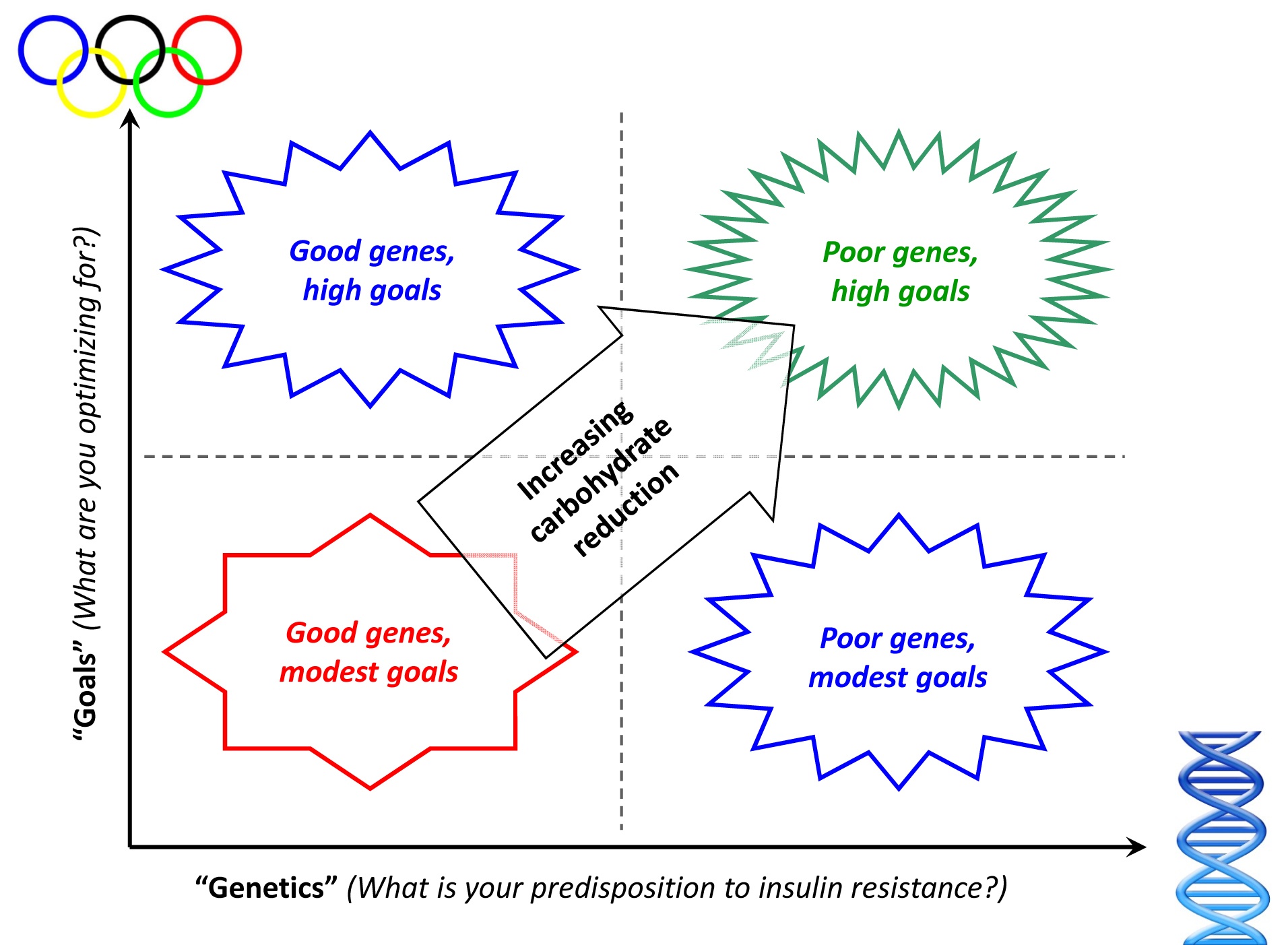

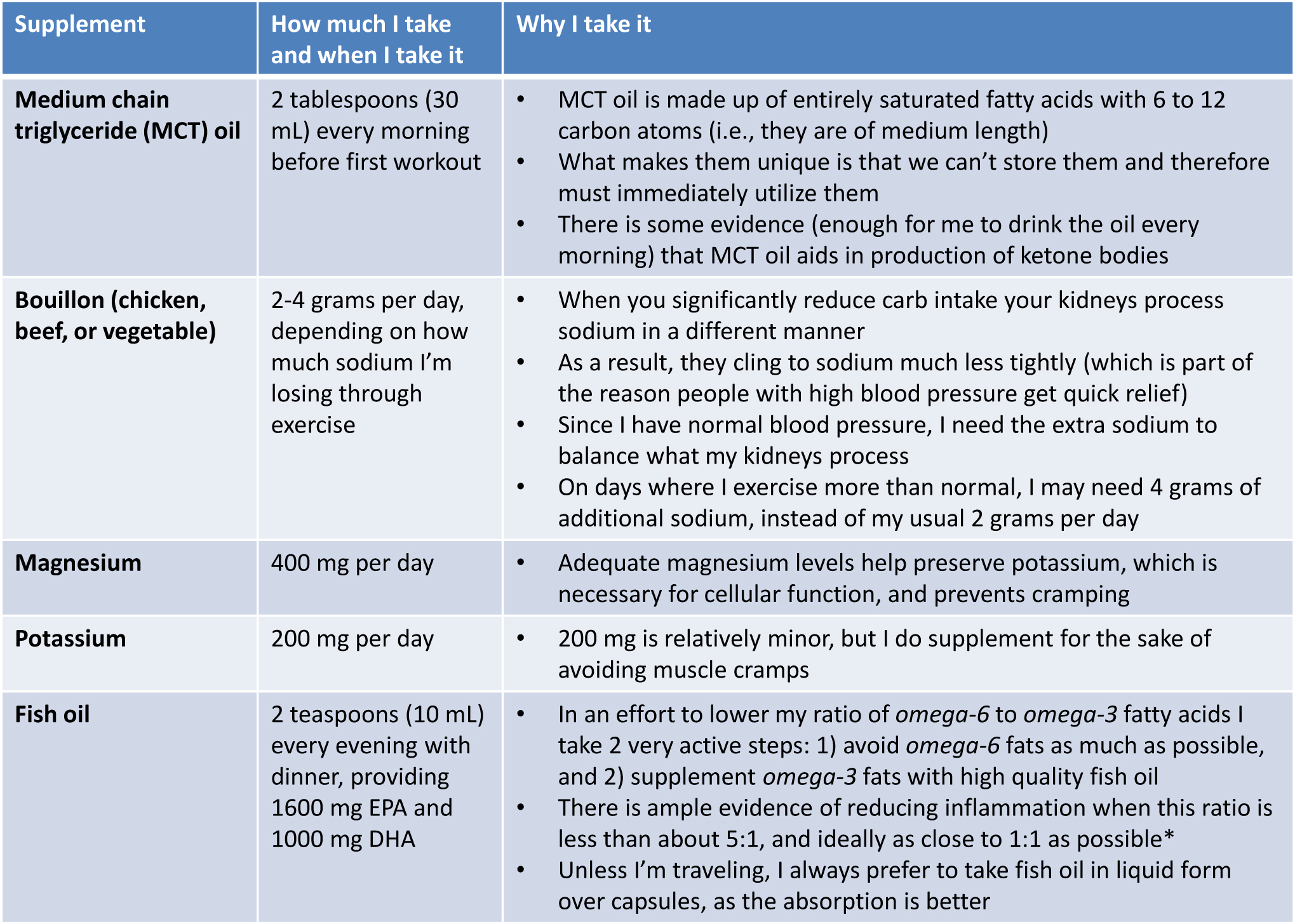

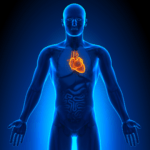
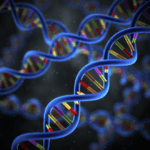
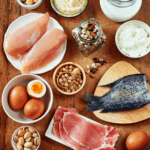
I have been following a very similar daily diet as you have describe above, and I feel great and with almost no craving for sugar ( which is a big step up for me). I only have started and only have about 7 days into it. I decided to weigh my self and ….oops I have gain 3 lbs. is this normal? or am I doing something wrong?….please let me know.
I am 47 years old male. Thanks and I love your blog.
Hi Peter. I was introduced to your work through your visit to the IMHC in Pensacola, where I live. I am somewhat of an experimenter myself, and I have a couple of advantages: I have been a vegetarian for many years and am tired of people nagging me to get “enough” protein, and I don’t really like to eat anyway, so I don’t much care what it is, as long as it is healthy. As a former high school and college athlete who has always trained relatively hard, the older I get the more I appreciate the strategy of working smarter, not harder. As a young athlete, you do have the potential for better results with more effort. Unfortunately, as an older athlete, that is not always the case. Add the demands of career, family, etc., and sometimes all you get is exhaustion and/or injury. So I decided to dive right in and your blog has been so helpful answering the questions that have come up so far. I am thankful to have found you, and am looking forward to following you in the future.
Hey Peter just wanted to give you a heads up that this page is kind of broken due to too many comments trying to load. Many technical glitches going on. For example the page crashed twice on me and functions are slow/unresponsive.
You may not see it because it’s probably cached on your machine but NEW visitors (arguably the most valuable kind) will experience massive frustration resulting in page/site abandonment.
I suggest that you have your web guy set your site up so that only 100 comments per page can load and add a “see more comments” button at the bottom of each post.
Feel free to delete this comment.
Thanks for all your hard work. I’ll keep reading and add relevant comments in the future. N. P.
Thanks, Norman. I don’t actually have a web guy, but I’ll see if someone can accommodate. It would not be the worst thing if no one looked at this post, mind you. This is a largely irrelevant post.
………..
……………………………
Note: I use Slimbrowser with javascript turned off – to read and post on this blog – all pages load in about ten seconds this way –
Using Firefox 2.2.xx your pages will not load at all correctly – the same with Internet Explorer 6 – if scripting is left on –
Your pages will load quite well using Opera 12.x.x even with scripting turned on –
This is caused by all the stupid scripts on the page and endless domain call’s to Twitter – Facebook – Google+ with each of these domain call’s having a sever certificate that has to be processed –
With scripting turned off – even a 1000 comments page load’s just fine – it’s Facebook – Twitter – Google+ that is causing most of the problems as each one of these make several domain call’s – the newest browsers and operating systens may be able to process this garbage but many older browsers and operating systems can not handle this –
Hi Peter! Just yesterday I came across your speech on TED Talks about obesity and insulin resistance. I am intrigued by some of your ideas. However, I have my own personal case that I’d like to get your input on if possible. I am a lean insulin resistant person. Do you have a personal email in which I can go about telling you my story? Thanks.
I’m sorry Ashley, I can’t provide specific input beyond what I comment on in the blog.
How many grams of protein do you recommend?
love this blog!!
Thank you so much for your wonderful website. I’ve learned so much here.
Did you find that when you became fully keto adapted you needed less calories overall? I know you say you eat less now but i’m very interested in whether you think the body becomes more efficient at using fat for energy over time?
Some people do, others do not. I’m actually working on a blog post this week to address this, among other things.
Saw your Tedmed talk, and after reading this, have started to move more towards the zero sugar direction.
Are there any special dynamics that fasting add to this kind of eating? My blood sugar was 97 while fasting. And if I can eat this way before surnise and after sunset, would you think there would be a “faster” way out of metabolic syndrome? or would the fasting somehow sabotage it?
Not sure. Fasting obviously increases B-OHB production, though not sure in the short run how it impacts IR.
This is a great web site. In-depth discussion and scientific concepts one NEVER sees except in journals or maybe on MedLine. I’m not quite at the Stanford level–only went to UCSF (LOL)–but I really appreciate all this scientific and personal information.
I had weight loss surgery 11 years ago. Met someone in the program, fell in love, and we got married. We were told to stick to an Atkins-style diet. My husband lost 250 pounds; I lost 150–from size 4X to size 6. Today my lifestyle looks like this: Mostly low-carb, except for Chardonnay (3x/week, 2 glasses), fruit, and the occasional dessert–in other words, I’m about 70% compliant. NO exercise (I’m convinced it causes toxic levels of smugness). Still a size 8. My husband: Eats very little, usually protein supplement or bar for breakfast and lunch and a light low-carb dinner. He NEVER touches sugar (used to be diabetic…not anymore). Works out for 45 minutes, 5 days a week (low-impact). Can’t get below 285 pounds. It’s just Not Fair! Yes, his family is more prone to morbid obesity than mine was. So we know there are differences here under the hood. But it breaks my heart that some people treat him like he’s an immoral fat guy when he’s actually more disciplined and compliant than I am. OK, enough with the venting. Thanks for this web site, it’s awesome.
UCSF is a pretty darn good school! Nothing to scoff at there. If exercise causes toxic smugness, I’m in trouble, but I probably already know that.
Hi Peter, An unbelievably useful site.
I am working on being a keto adapted endurance athlete, middle of week 4, and have a couple of queries, for which I would very much appreciate your experienced input.
Training is around 20 hours a week, when energy allows.
I have been struggling a little with training, having some average days and some pretty poor days. Not many great days yet. The main problems are the legs are generally heavy, little power and secondly endurance is difficult past 3 hours cycling or 2 hours running. I feel flat and weak when training from start to finish, but I feel fine the rest of the time. Recovery between workout is not great, meaning there is residual fatigue in the legs from day to day. I virtually never had DOMS when on high carb, perhaps once a year. The upper body work is not of any concern at this time, I have not noticed significant impact here, but upper body volume is much lower.
I have been going over Drs Pinney and Volek’s books in search of what may be happening and what I can do to alleviate it. I use a decent stock for salt intake and use NUUN, which provides a few other minerals. I supplement with BCAAs and other aminos, in addition to calcium and magnesium.
I am not using any nutrition, other than electrolytes when running and cycling. Tried UCAN got very upset stomach within 30mins. Ketone levels are decent, around 1.0 in the morning, raising to 2.2 to 2.9 after exercise.
First questions, is it possible I am just not eating enough? When using a diet of carbs one knows when they run out, it’s obvious. But when in Ketosis there is always fuel, but perhaps not enough is going in to support exercise? One just thinks fat is fat, whether it comes from food going in or metabolizing what’s been stored over time in tissue. But perhaps this is not the case? And perhaps the adaption to be able to effectively fuel endurance work solely from stored fat can take significant time, longer than the 4 weeks bandied around? I am trying to understand where exactly is the source of the fuel coming from when exercising. Is it from the local cells fat stores or the blood, originally from where ketones or fatty acids? Similarly can it take significant time for the body to respond and be able to work at 60-70+% FTP primarily on fats? Could this be exacerbated if one is coming from previously using a lot of carbs to fuel – 4000 calories over 180Ks – Not go slow eat a lot, rather go hard eat as much as you can and at the end feel hungry.
Second questions – Is it likely to be useful to try to assist the body during endurance sessions, as one adapts and perhaps longer term, by consuming fats during training. Which fats would you suggest as most effective, short or medium chain? If one loads up fat the night before is there any likely benefit? How long do they sit in the system to be of use? Medium / short chain fats would not be much use? What if the fats stores in the muscles (similar to glycogen stores as I understand it) are depleted, how does one best refuel these? How about strategic use of a mix of carbs and fats during endurance training? If insulin response is reduced during physical exercise, it seems this could be a possible approach?
On the good side the fat seems to be dropping off, but at some point one needs to do some real training in order to get to the start line ready to race, which is rapidly approaching.
Many thanks.
It takes me weeks to months to troubleshoot problems like this, but my first guess would be insufficient sodium (and water), followed by further need for adaptation at that level of intensity. Adaptation for a desk jockey may take a month or less; adaptation for me took 18 months!
Hi! I don’t know how I stumbled on your website but I am sure glad I did. I had gastric bypass 4 years ago and am currently training for a marathon….because of my stomach size I cannot “carbo load” in any way, but I can load up on fat which is what I am doing now!
Hello: I started by reading Taubes, then went to Sean Croxton, and David Asprey and then Jimmy Moore and on to Johnny Bowden, The Caltons, The wheat belly, etc etc etc. Seemed like a slam dunk of simplicity from an end user standpoint. No carbs, no fat. Soooo, my spouse and I began the change.
Quick history.. We were both overweight. Im 50 and spent my youth skinny but as I aged added weight over time up to 241. Im 5’11” and loved me some sweets. My wife is a lifetime sufferer of weight problems and has never had any success with any diet. We joined “U weight loss” (the zone diet) and both lost weight. I lost 65lbs and my wife lost 45lbs. (This was before we knew anything about weight loss and before we read any of the low carb info. Ive come to believe the lower carb of the diet was likely the main weight loss factor. My wife plateaued and has not progressed. I rocked past my goal down to 177 and for a time, seemed like I was never going to stop. Then we ran out of money…or at least the will to keep paying the fees so we left the program and thought we could do it alone. Thats when I went on the reading journey and we decided to try it.
Since going low card, we have gained weight. We kept track of our caloric intake to be able to compare and answer questions, not to calorie restrict. Although, i am finding it hard to consume much more than 2000 calories a day and Im not hungry as much. We have completely eliminated wheat, sugar, and processed foods. We eat locally grown organic vegetables, grass fed locally sourced beef, pork and chicken, pastured local eggs, low dairy (some kefir, cheese, butter and greek yogurt) no milk etc. We consume MCT oil, grass fed butter, coconut oil and extra virgin olive oil. Have almost no need to go into a grocery store sort of thing.
Since doing this, Ive balooned to 187 (+10lbs) and my wife is up to 160 (+7lbs). We get moderate exercise. We went through hell for a couple weeks from withdrawal but that cleared up. I feel pretty good and so does my wife. The added and slowly increasing weight seems to go against everything the above authors are saying. We do take supplements, Vitamin C, D during the day and Magnesium/Potassium at night.
Can you suggest where we might investigate the cause? Should we do an elimination diet and get rid of raw organic nuts and all dairy, and eggs for a few weeks to see? Anything will help. Thanks.
Hard to know from over here, Wes. Perhaps today’s post could give some insight. Or others may chime in.
I’m a big follower of Dr. Mark Hyman and his anti inflammation program, and your approach is interesting. Sugar, wheat, anything processed are the same suspects everywhere. I am curious though how you think processed meat, like salami, are okay. Or do you use non preserved meats? Also, for your contributors above, diary can be a big inflammation cause and I would suggest they try the anti elimination program and then add back one item at a time, after 3 weeks. Evidently, best way to reintroduce is to take a small amount of food 3 or 4 times a day for 3 days and note your reaction. Also probiotcs really great idea.
I love this site. Thanks for all the free and useful information. I started a nutritional ketogenic diet a couple weeks ago and used your eating templates for ideas. I just split the macros in half since I don’t require as many calories as you do. Thanks for using your valuable time to run this blog. It means alot to us, especially me.
Sincerely,
JS
PS: That fat shake is pretty freaking awesome! I alternate this with bulletproof coffee in the morning.
Thank you so much Doctor Attia for all your research and sharing with us. I thought I might add that over the past 5 years I have changed my diet to a more Weston A. Price one… he was a dentist that studied traditional cultures that had excellent health. It is lower carb, high fat and protein. I find that all bouillon on the market has MSG(which goes by 50 different names) and can seriously affect a lot of peoples health. I personally make a bone broth with marrow bones over night in the crock pot to sip on. I also use raw dairy only because…. well I could spend a really long time explaining that one… lets just say I have NO asthma, allergies, migraines or IBS from raw dairy but I had all of those with processed dairy. Plus it is higher in fat which is what is needed for proper mineral absorption. I also find that sometimes a chocolate craving is due to a need for magnesium which seems to be something many typical american diets are lacking in but I do agree with the person that mentioned gut flora issues too. I do still use high quality cacao powder in some coconut oil. I agree with you that “festina lente”… I jumped in with both feet when I was sick of being sick but it took a year to really learn what my body needed and what I felt good on. I think as you change things it gets easier, more automatic and you find what works. Being a woman that works her small hobby farm I find higher fat, medium amount of protein and lots of vegetables especially in season and mostly green veg keeps me feeling great. I don’t eat many fruits but will eat my fill when they are in season and I pick them. I do throw a few in the freezer for a winter smoothie. This year I turned 43 and found I was pregnant. Excited but was a little nervous cause after all the healing I went through the past 5-8 years I didn’t know how my body would handle the pregnancy. I am now 29 weeks along and took the glucose test and failed(130 is cut off and I was 180). First pregnancy had gallbladder issues(which is now removed) which they say affected my glucose test the first time. I kept my sugars at 78-80 the rest of the pregnancy with diet. Second pregnancy after having my gallbladder out went fine with no insulin issues. Now this is third pregnancy and I have a fibroid that I think is affecting my metabolism. I only gain 20 pounds with my pregnancies and my babies so far have weighed 6 lbs and healthy. I breastfed both for two years. I am a little over weight normally( I gained weigh after having the gallbladder out and can’t seem to loose that). I don’t do regular exercise but we do kayak, hike and work our farm so it is more endurance in spurts rather then cardio everyday. I think the weight would come off a little easier if I could be as disciplined with some daily exercise as I am with food. So I only have one question- why does other health issues(stressors) like the gallbladder problem and fibroid growth affect the metabolism?
I have a few questions in terms of overall calorie intake and symptoms of nutritional ketosis. I have been reading about as much info as I can get my hands on, and I am really excited to start this new state of nutrition in my life. At times I am a bit extreme, so I have went from 0-100 with this new information. I weigh 167 currently and would say I am definetly on the insulin resistant side of the spectrum, possibly not as extreme as others but with consistant exercise and a relatively healthy diet including consistant cardio I remained at about 16% body fat as well as other issue’s regarding my overall health from diet mainly a high Carb diet contributing to more ups/downs then just insulin/blood sugar. So to the questions 1) I am currently allowing myself 25-30g of carbs, 140g of fat and about 130g of protien aiming to hit about 1800-2000 calories daily. The major issue I am having aside from the shock of not eating carbs is a constant hunger state, hollow stomach feeling even shortly after meals of 450-600 cal I find that feeling back again an hour later. I drink about a gal of water a day as well as coffee intermittantly as well. Would you say its likely I am not consuming enough cal per day or is this normal in the transition period I could not find any info on this spefically. I work out med/high intensity 4-5 times a week, do endurance sports atleast 1 time as well. Any ideas or help would be greatly appreciated!! Thanks for all of your knowledge and experience!!
Hi Dr. Attia,
I noticed that you eat Fage yogurt. I am a little confused on how to count carbohydrates in yogurt. I know has something to do with the live cultures (among other factors), but I’m not clear on the actual count. I would love to include yogurt back in my eating plan. Thanks!
The carbohydrate found in milk is a sugar called lactose, which is made up of two molecules that are linked together: galactose and glucose. The bacteria cultures that are added to milk are allowed to ferment and start breaking down the lactose into its seperate components and then convert the resulting glucose into lactic acid. This gives yogurt it’s sour taste. Once the yogurt is cooled down to storage temperatures this process is significantly stalled, although the bacteria are still alive. Some people claim the fat, protein and carb content on the nutrition label for yogurts is measured before the bacterial fermentation, so at that point it would just be milk.
Anyway, I was able to find one study that looked at this subject:
https://www.ncbi.nlm.nih.gov/pubmed/7076958
Though I don’t have full access to it, reading through the abstract it notes that in the yogurt they tested the lactose was decreased from 4.8 grams per 100 grams to 2.3 g/100 g, and galactose went from trace amounts to 1.3 g/100 g. Implying that the carbohydrate reduction was roughly 25%.
Another thing: Greek yogurt specifically is a bit higher in fat and protein compared to regular yogurt. This is because the liquid whey is strained out (which removes some carbohydrates and also a small amount of protein) and in essence concentrates everything else because the water content as a percentage is lowered slightly.
There does seem to be some variance in how well people do on different kinds of dairy products, so if you’re unsure about what to do, the only real answer in my mind is reintroduce yogurt into your diet and observe how you feel.
Not that it’s significant, but I also wonder what happens to lactic acid that’s ingested. Is it converted to glucose, and if so, at what efficiency. Anyone have an idea?
“I do not take a multivitamin at this time, but I am looking into it a bit more closely. My concern is that 1) they may not be necessary when you remove glucose from your diet (I’ll write about why in the future).”
Hey Peter, I enjoy reading your blog and have learned alot about cholesterol and ketosis in the past 6 months I have been reading. I do have a question on your statement above regarding supplements. What is it that glucose effects as far as vitamin/mineral levels in our body? Have you broke this down in any further detail? I take about the same amount of supplements you do, being an endurance athlete with recorded low sodium levels i make sure i keep up with my electrolytes. And my omega 3’s to keep a decent ratio. I appreciate your time.
Have not elaborated, but my thinking has sharpened on this. Now I’m 99% sure there is role for MV per se, but for specific supplementation.
I have been following the modified Paleo Diet primarily the version from Dr. Wahls and her Wahls protocol. I also have primary Lymphedema and I manage it through the diet…Sticking to a low sodium (1500 mg or less per day) is tough but doable. Many of the OK items in Paleo template are not so OK in a low Sodium. Like certain cheeses, etc…anyone out there doing a low sodium diet and low carb? Suggestions
Phenomenol information Peter. 10 years ago there was so very little unbiased information on the actual health/ weight benefits of ketosis, low carb out there. Yourself and G.Taubes are to be commended. Congratulations on your informative website!
Thanks very much. Greatly appreciated. I think there really are a lot of great references out there on this topic.